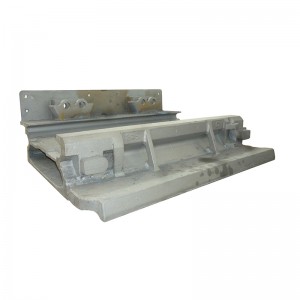- Afrikaans
- Albanian
- Amharic
- Arabic
- Armenian
- Azerbaijani
- Basque
- Belarusian
- Bengali
- Bosnian
- Bulgarian
- Catalan
- Cebuano
- China
- China (Taiwan)
- Corsican
- Croatian
- Czech
- Danish
- Dutch
- English
- Esperanto
- Estonian
- Finnish
- French
- Frisian
- Galician
- Georgian
- German
- Greek
- Gujarati
- Haitian Creole
- hausa
- hawaiian
- Hebrew
- Hindi
- Miao
- Hungarian
- Icelandic
- igbo
- Indonesian
- irish
- Italian
- Japanese
- Javanese
- Kannada
- kazakh
- Khmer
- Rwandese
- Korean
- Kurdish
- Kyrgyz
- Lao
- Latin
- Latvian
- Lithuanian
- Luxembourgish
- Macedonian
- Malgashi
- Malay
- Malayalam
- Maltese
- Maori
- Marathi
- Mongolian
- Myanmar
- Nepali
- Norwegian
- Norwegian
- Occitan
- Pashto
- Persian
- Polish
- Portuguese
- Punjabi
- Romanian
- Russian
- Samoan
- Scottish Gaelic
- Serbian
- Sesotho
- Shona
- Sindhi
- Sinhala
- Slovak
- Slovenian
- Somali
- Spanish
- Sundanese
- Swahili
- Swedish
- Tagalog
- Tajik
- Tamil
- Tatar
- Telugu
- Thai
- Turkish
- Turkmen
- Ukrainian
- Urdu
- Uighur
- Uzbek
- Vietnamese
- Welsh
- Bantu
- Yiddish
- Yoruba
- Zulu
Nov . 07, 2024 13:46 Back to list
OEM Epoxy Resin Powder Coating for Gray Cast Iron Pipe EN877 Standard Applications
Understanding OEM Epoxy Resin Powder Coating for EN877 Gray Cast Iron Pipe Casting
In the realm of industrial and construction applications, the protective coating of materials is crucial for ensuring durability, longevity, and aesthetic appeal. One such effective solution is the use of OEM (Original Equipment Manufacturer) epoxy resin powder coating, particularly for gray cast iron pipes adhering to the EN877 standard. This article delves into the characteristics, advantages, and applications of this coating methodology.
What is OEM Epoxy Resin Powder Coating?
OEM epoxy resin powder coating is a type of protective finish applied to gray cast iron pipes. The term OEM signifies that the coating is manufactured to the specifications of a particular customer or brand, ensuring tailored performance for specific applications. The coating itself is made from epoxy resin, which is known for its exceptional bonding properties and hard, durable finish. The powder is typically applied electrostatically and then cured under heat, resulting in a robust layer that bonds tightly to the surface of the cast iron.
Characteristics of EN877 Gray Cast Iron Pipes
EN877 is a European standard that details the specifications for cast iron pipes intended for use in drainage, sewage, and vent systems. Pipes manufactured under this standard showcase superior resistance to internal and external pressures, making them ideal for a range of environmental conditions. The gray cast iron used in EN877 pipes has excellent corrosion resistance, strength, and the ability to withstand high temperatures, making it a material of choice for many plumbing and civil engineering projects.
Advantages of Epoxy Resin Powder Coating
1. Corrosion Resistance One of the most significant benefits of epoxy resin powder coating is its superior resistance to various types of corrosion. In environments where gray cast iron pipes are exposed to moisture, harsh chemicals, or seasonal temperature fluctuations, the epoxy coating serves as a protective barrier, significantly extending the life of the piping.
2. Durability and Hardness The curing process of epoxy coatings results in a hard surface that can withstand impacts and abrasions. This feature is particularly important in industrial settings where pipes may encounter rough handling, heavy traffic, or exposure to mechanical wear.
oem epoxy resin powder coating en877 gray cast iron pipe casting

3. Aesthetic Appeal Available in various colors and finishes, epoxy resin powder coatings provide a clean and attractive appearance, enhancing the visual quality of installations. This is particularly important in visible construction areas or when pipes are installed in public spaces.
4. Environmental Resistance Epoxy coatings are resistant to a wide range of environmental conditions, including UV radiation, moisture, and various chemicals. This resistance makes them suitable for both indoor and outdoor applications.
5. Low VOC Emissions Unlike traditional solvent-based coatings, epoxy resin powder coatings contain minimal volatile organic compounds (VOCs), making them a more environmentally friendly option. This is particularly relevant in today’s eco-conscious landscape, where regulations are tightening around emissions.
Applications in the Industry
The application of OEM epoxy resin powder coating on EN877 gray cast iron pipes is widespread. These coated pipes are frequently used in
- Drainage Systems The corrosion-resistant qualities of epoxy coatings make them ideal for use in drainage systems where exposure to moisture and chemicals is prevalent. - Sewage Systems Cast iron pipes are commonly used in sewage systems, and the added layer of epoxy coating enhances their durability and lifespan, reducing maintenance costs.
- Ventilation Systems In environments where gases or vapors may come into contact with the pipes, a protective layer can prevent deterioration and ensure safety.
Conclusion
The use of OEM epoxy resin powder coating for EN877 gray cast iron pipe casting offers exceptional benefits that enhance the performance and longevity of piping systems in various applications. With its outstanding corrosion resistance, durability, and low environmental impact, this protective coating is a superior choice for contractors and engineers looking to ensure the reliability and attractiveness of their installations. Investing in quality coatings leads to significant long-term savings and improved performance, making it a fundamental consideration in modern construction practices.
-
Premium Cast Iron Water Main Pipe: Durable, Corrosion-Resistant
NewsAug.03,2025
-
Durable Cast Iron Water Mains | AI-Optimized Systems
NewsAug.02,2025
-
High-Efficiency Propane Boiler for Baseboard Heat | Save Energy
NewsAug.01,2025
-
Premium Source Suppliers for Various Gray Iron Castings
NewsJul.31,2025
-
Durable Cast Iron Water Main Pipes | Long-Lasting
NewsJul.31,2025
-
High-Quality Cast Iron Water Main Pipe for Durable Infrastructure
NewsJul.30,2025


